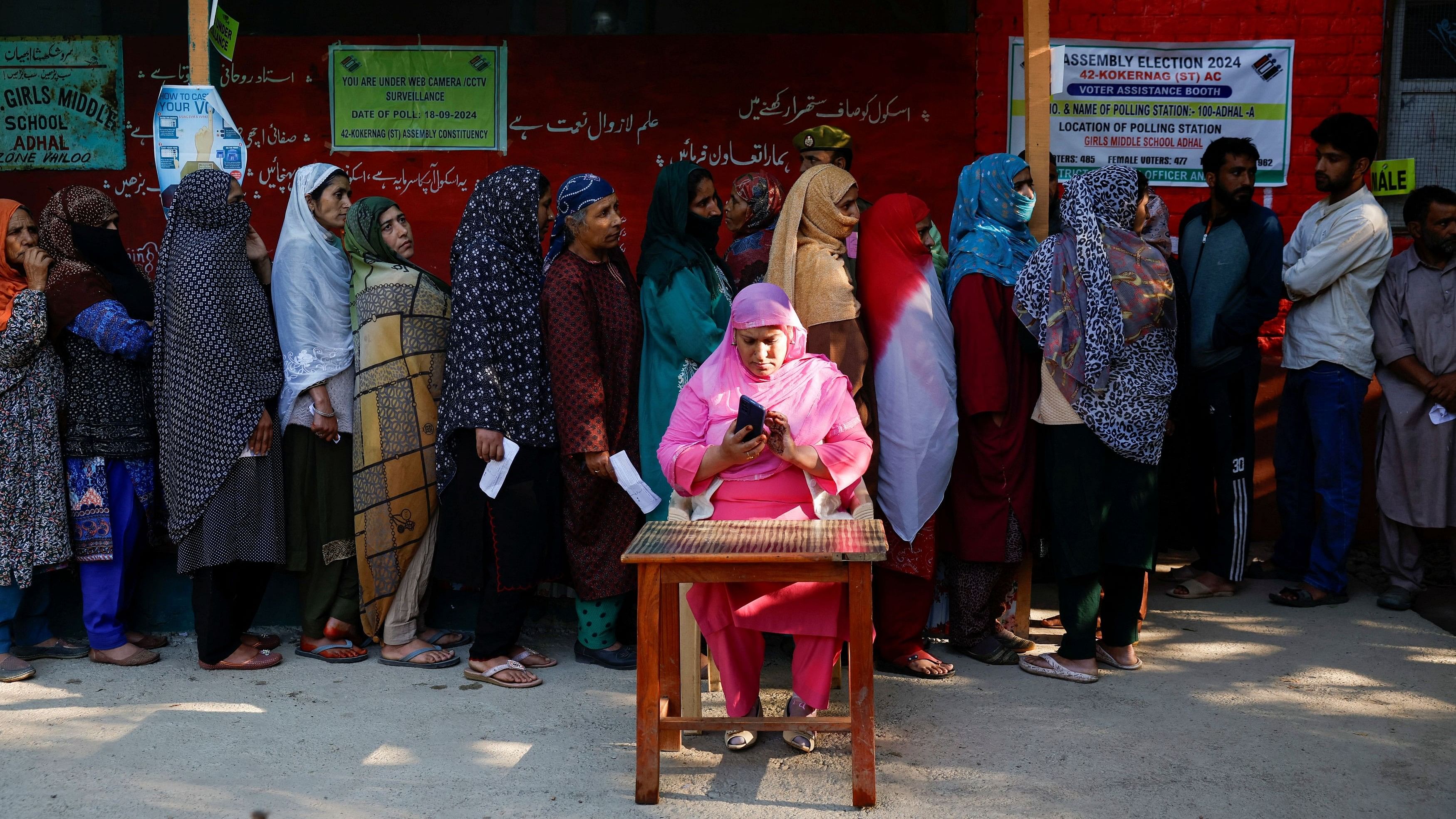
Kashmiri women stand in a queue to vote at a polling station, during the first phase of assembly election, in south Kashmir's Kokernag.
Credit: Reuters Photo
Kulgam: In the Bugam area of this south Kashmir district, residents broke a long-standing boycott to participate in the assembly elections, driven by hopes for a fresh start with an elected government.
The region, known for its ties to the banned Jamaat-e-Islami and the Hizbul Mujahideen militant group, recently hosted a major rally supporting Sayar Ahmad Reshi, the Jamaat candidate for the Kulgam constituency.
The National Investigation Agency had previously raided Reshi's home, as well as that of former Jamaat chief Sheikh Ghulam Hassan, multiple times in connection with a terror funding investigation.
Historically, residents of Bugam and nearby Jamaat strongholds like Bichroo and Sangas had avoided Indian elections since the onset of armed conflict in 1989. However, the Jamaat’s electoral engagement prompted many voters to participate this time.
Farhat Dar, a 33-year-old master’s degree holder from Bugam, cast his vote for the first time. He reflected on the futility of previous boycotts, stating, “Violence and election boycotts brought only death and destruction. We should give peace a chance, and voting is a way to express that.”
He expressed hope for better opportunities for unemployed youth, as many political parties focused their campaigns on addressing this issue. “After a decade of no local representation, there is significant anticipation among the unemployed youth like me who have been waiting for the democratic process to resume and elect candidates who will prioritise job creation,” Dar said.
In contrast, voters in the neighboring Tarigam area, home to veteran CPM leader M Y Tarigami, expressed skepticism about the Jamaat's motives. Bashir Ahmad, a local voter, noted that Tarigami has consistently advocated for the constitutional rights of the people.
He questioned the Jamaat’s shift from boycotting elections to participating in them, recalling past violence against voters.
Despite differing views, many like Ahmad remained hopeful that the new government would tackle unemployment and protect land rights in the wake of the erstwhile state’s special status under Article 370. They hope the elected government makes the recruitment process for jobs in the region transparent.
There were mixed reactions to the speculation that the BJP might be using the Jamaat to manipulate voter dynamics.
Ubaid Mir, grandson of a former Jamaat leader Abdul Razak Mir, emphasized that voting is a powerful tool for ordinary citizens to challenge corruption.
Reshi defended the Jamaat’s electoral participation, recalling that the boycott began as a protest against the alleged rigging of the 1987 assembly elections, which many blame on the National Conference.